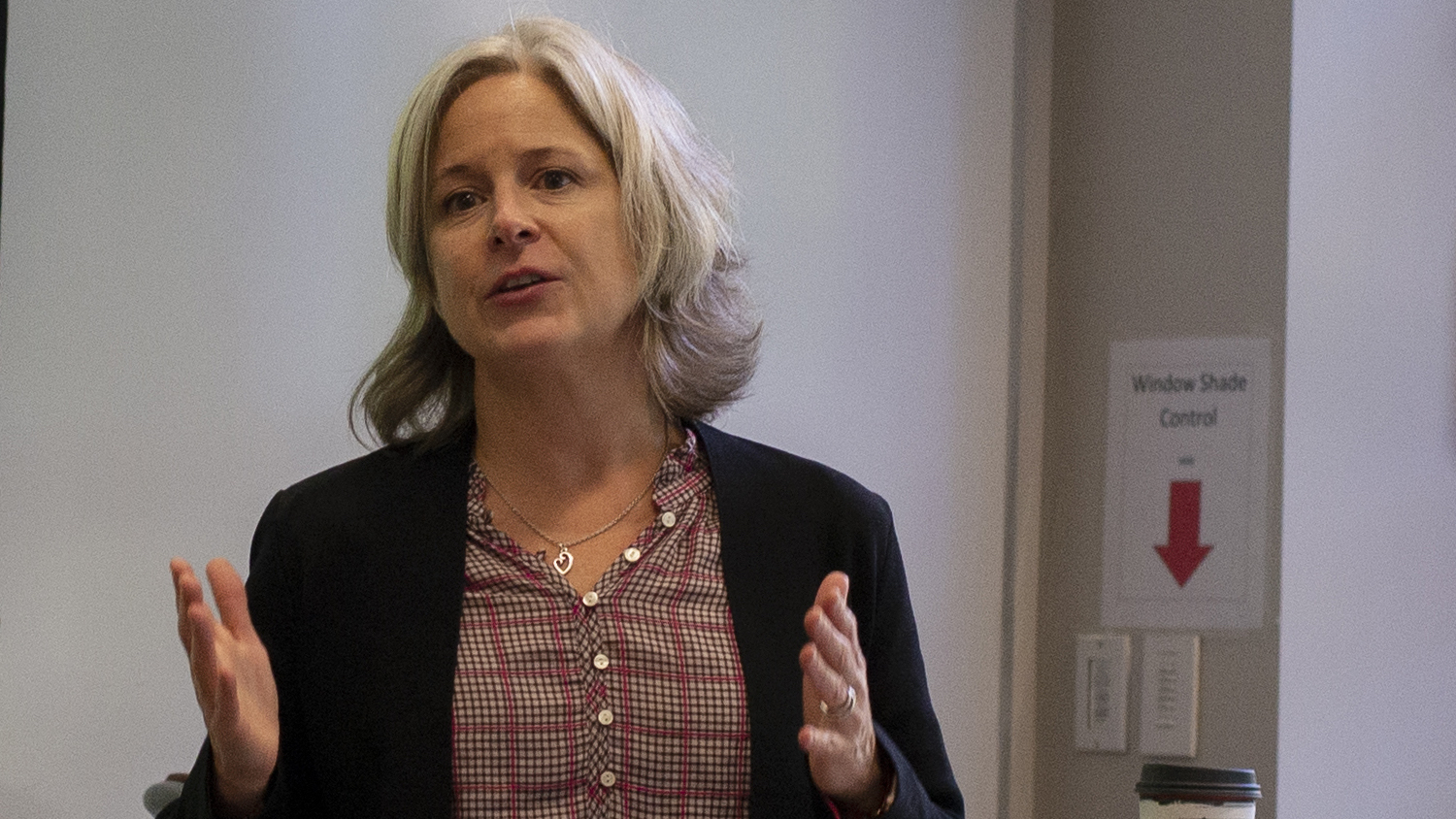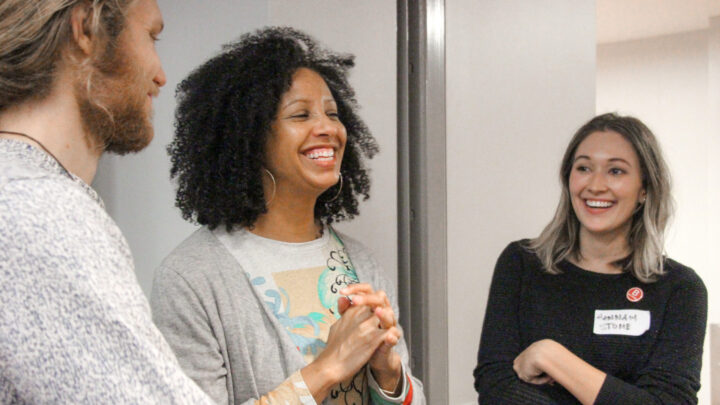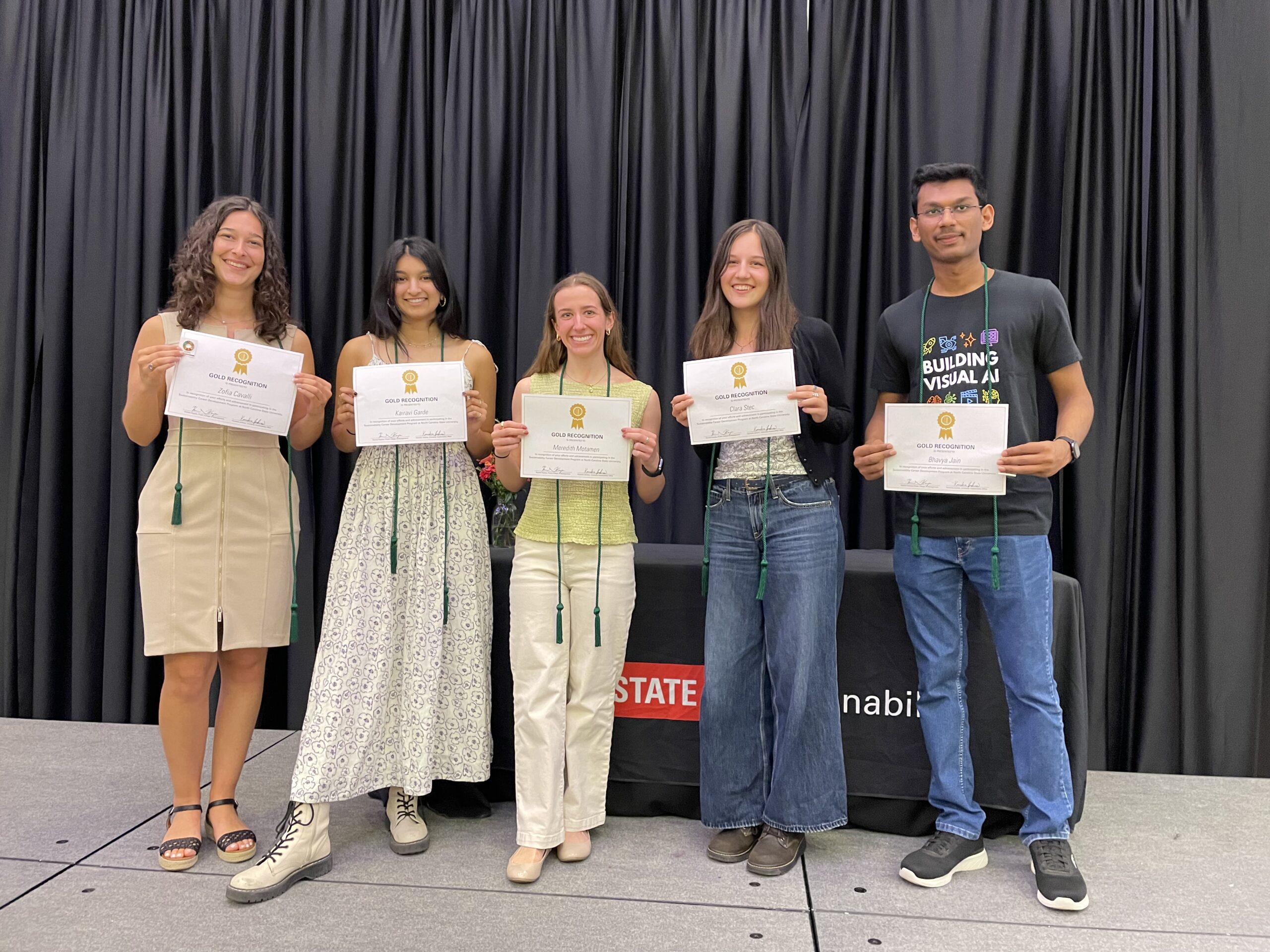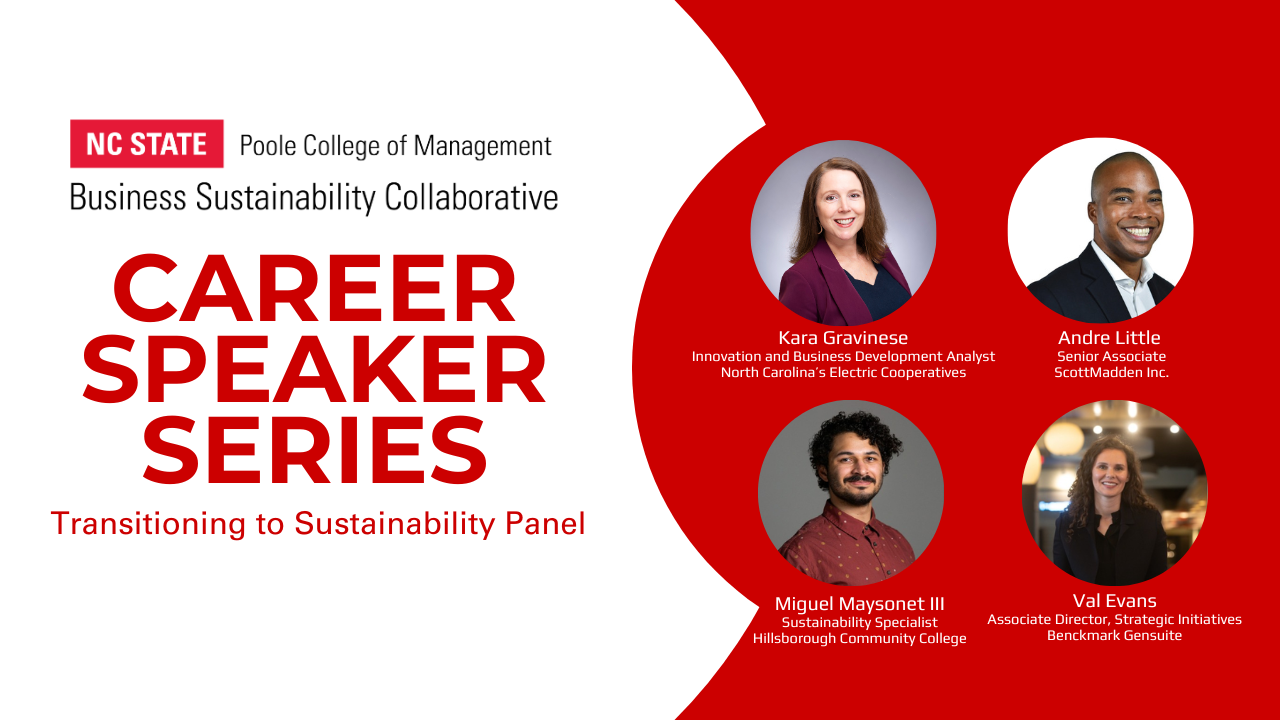Burt’s Bees’ Paula Alexander Joins MBA Guest-Lecturer Series to Talk About Sustainability Practices

As part of the guest-lecturer series in Jessica Thomas’ MBA 582: Sustainability and Business course, Paula Alexander, director of sustainable business and innovation at Burt’s Bees, spoke to a class full of Jenkins graduate students Oct. 23 about the essential role sustainability plays in the company’s operations, values and branding.
Jessica Thomas, MBA, is the director of the Business Sustainability Collaborative in Poole College of Management and, appropriately, MBA 582 explores the ways in which businesses drive innovation and build business value from sustainability practices, as well as the tools businesses use to successfully apply sustainability measures.
Alexander is a 20-year veteran of corporate marketing, branding and sustainability. She worked at Unilever before joining Durham-based Burt’s Bees, where she has been for the last 13 years, and she has an MBA from Duke University’s Fuqua School of Business.
We reached Alexander by email and she answered some important questions concerning corporate responsibility for sustainability, brand strategy and paths to success for future sustainability professionals.
Here’s our Q&A with Paula Alexander:
In your lecture, you said it is “business’s responsibility to drive the change we want to see.” Given the inherent focus on profit generation, why is it the responsibility of businesses to create change from a sustainability perspective?
I came to Burt’s Bees after working on the original Dove campaign for “Real Beauty,” which over a decade ago set off a cultural movement for women and girls’ empowerment. I learned that the brand could stand for so much more than a beauty bar. The brand built self-esteem. At Burt’s Bees, we’ve helped create the natural beauty and personal care category in the United States. Working on these two brands has helped me see first hand how taking a stand and driving industry change can grow brand health and sales, which then can fuel pioneering social and environmental responsibility. Business hasn’t always had a sole focus on short-term profitability, and I’m optimistic we’re going back to the days of business as a creator of community. As Burt Shavitz, our co-founder, once said, “The old ways are the best ways.”
What aspects stood out to you about Poole College of Management and the Business Sustainability Collaborative that convinced you to give a lecture in MBA 582?
Poole College’s Business Sustainability Collaborative focuses on the whole system approach to sustainability, weaving it into all aspects of the business value chain, upstream into supply chain, downstream into shopper behavior and all links in between. More than a quarter of the faculty work with the collaborative to integrate sustainability into their curriculum. This is essential for developing responsible business leaders of tomorrow.
How important is branding to a company’s sustainability efforts, and which principles are essential for a successful sustainability brand strategy?
Before I was leading sustainability at Burt’s Bees, I was a brand marketer. While sustainability from source to disposal is a complex system organizationally, good branding fundamentals can help simplify sustainability for stakeholders, so it can be understood and help drive behavior change. Focused branding helps cut through clutter and connect emotionally. Burt’s Bees strives to do both the difficult, long-term work to be more sustainable while also encouraging the public to take the small steps that are easier to take immediately and ultimately add up to a larger collective impact.
What are the best ways for new business sustainability professionals to succeed and advance sustainability innovation, and how is Burt’s Bees addressing sustainability innovation?
Burt’s Bees has been innovating products sustainably for decades, holding ourselves to high standards for natural formulations, sustainable packaging and responsible sourcing. Sustainable innovation starts with the global issue we’re trying to address. First, we ask ourselves, “Are we tackling the plastics waste crises, climate change, water scarcity or some other global threat?” Starting with the issue ensures we’re addressing it in the design phase.
My advice for new business sustainability professionals is to understand the issues from all angles — the science, policy, producers and consumers — [and] then ask, “What role can I play in being part of the solution?” Your ideas might inspire a new product, a new business model and changes in current processes or policies.
This post was originally published in Poole College of Management News.


